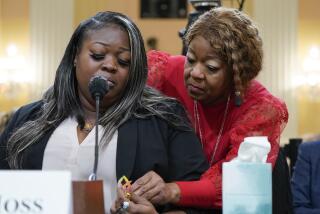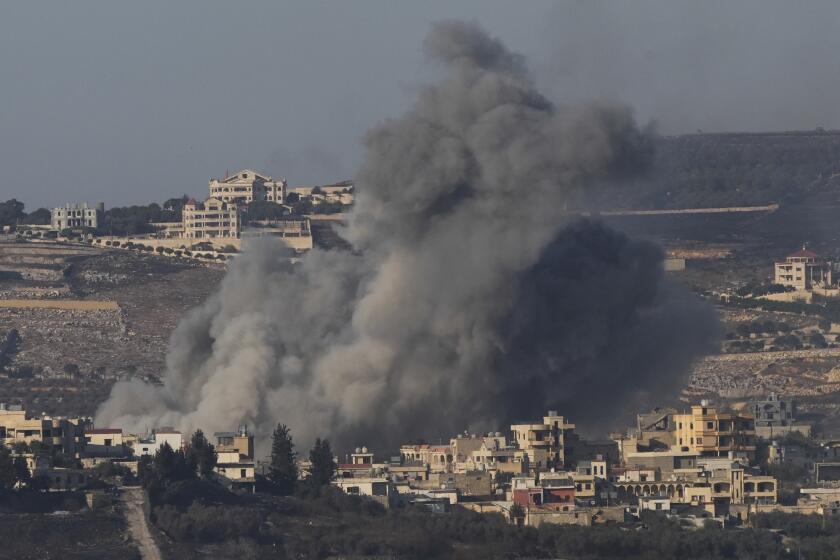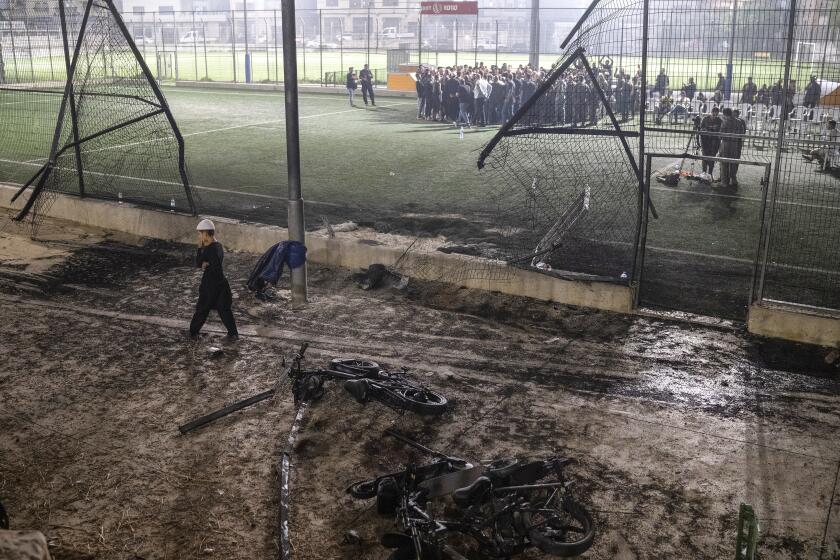Muslims in Kenya See U.S. Behind Anti-Islamic Moves
Members of this nation’s Islamic community accused the United States on Monday of pressuring Kenyan authorities to clamp down on Muslim organizations, which they say are wrongly suspected of possible involvement in last month’s bombing of the U.S. Embassy here.
The outcry by Muslim leaders follows last week’s decision by the government to ban 16 primarily Muslim organizations for security reasons and for allegedly overstepping their permitted activities.
Muslim leaders say that the organizations provided relief services to often-forgotten parts of the country and that they face intentional discrimination solely because of their religious affiliation.
Several members of Kenya’s ruling party have threatened to withdraw their support for the government in parliament, while other community leaders have vowed to incite countrywide protests unless the government rescinds its decision. Muslims claim the action is part of a U.S.-sponsored campaign of harassment and intimidation of members of their faith, who they say are being made scapegoats for the Nairobi blast, which killed more than 250 people and injured more than 5,000 others. An almost simultaneous bombing at the U.S. Embassy in neighboring Tanzania killed a dozen more people.
Five suspects are being held in connection with the two bombings, and all are reported to be Islamic extremists with links to Saudi-born alleged terrorist Osama bin Laden.
“This issue of always associating Muslims with the bomb blast is not good,” said Elias Barre Shill, a member of parliament. “Muslims on the street have been stopped and interrogated. We are being intimidated, and we feel there is pressure on the government by the Americans--and the Israelis.”
U.S. officials denied that Washington was involved in the banning of the nongovernmental organizations.
“This is a Kenyan action,” said one Nairobi-based U.S. official, who spoke on condition of anonymity. “They have drawn their own conclusions about what to do about various NGOs. . . . We certainly aren’t targeting any single faith.”
The Mercy International Relief Agency, one of the banned organizations, is based in a Nairobi suburb and reportedly funded by Saudi Arabia. It was raided last month by FBI and Kenyan investigators, who confiscated unspecified documents. According to unconfirmed news reports in the local press, the group’s inventory sheets were taken in an attempt to verify suspicions that the components of the Nairobi bomb might have been shipped to Kenya as part of the organization’s relief supplies. The agency’s directors could not be reached for comment Monday.
Members of parliament from Kenya’s predominantly Muslim northeastern regions of Garissa and Mandera said that several staff members of Islamic organizations had been arrested and that their groups’ offices had been ransacked. Other community leaders complained of FBI agents trampling through mosques “in dirty shoes” and disrepecting other Islamic institutions.
“What is surprising is the way the Kenyan government is just accepting everything [the United States wants],” said Abdullahili Ali, a member of parliament. “Next, we will be told to close our mosques.”
U.S. officials insist that Kenyan authorities are consulted on all actions taken by American investigators. “Kenyans have been with us the whole time,” said the U.S. official who asked not to be identified. “Our people know this isn’t their country; they have to follow the local laws and customs. Our people are not running around like they think this is the United States and they can do what they want.”
Kenyan officials also rejected claims that the government is out to persecute Muslims, but they failed to say exactly what the banned organizations had done wrong.
Muslim leaders say the banned organizations were involved in funding orphanages and providing food to thousands of needy people--Muslims and others.
The banned groups have the right to appeal, but few Muslim leaders believe that the decision will be reversed.
More to Read
Sign up for Essential California
The most important California stories and recommendations in your inbox every morning.
You may occasionally receive promotional content from the Los Angeles Times.











